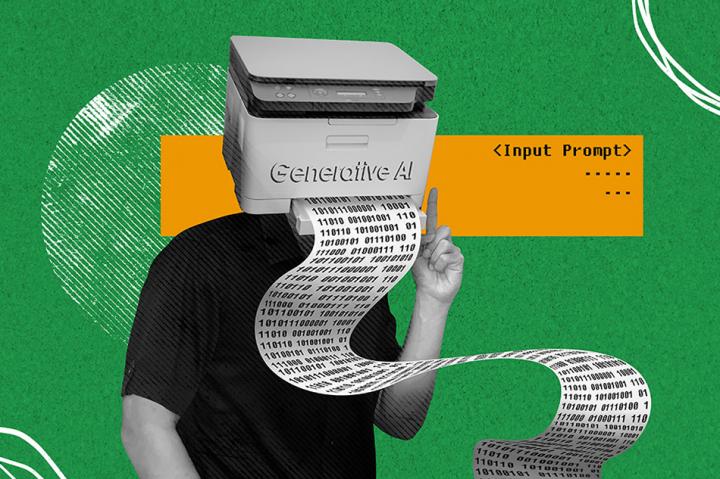Creativity vs Convenience - are we fighting AI for “the very soul of the world”?

From warnings about its potential dangers to optimism about its transformative capabilities, the conversation around the impact of Artificial Intelligence (AI) is continuing to stir up strong reactions and emotions.
Nowhere is this more evident than in the creative and tech industries, which have differing opinions on how AI should be regulated in relation to copyright. Balancing these needs and reaching a solution that will make both sides happy may prove difficult, but it's something the UK Government will need to come to a decision on soon, as a government reporting obligation introduced by recent legislation sets a timeframe for action.
Tom Justice, partner in our commercial team, looks at what we can expect over the coming months.
The issue
“The future of AI is not about replacing humans, it’s about augmenting human capabilities.” – Sundar Pichai, CEO of Google
“ChatGPT’s intent is to eliminate the process of creation…viewing it as nothing more than a time-wasting inconvenience… we are fighting for the very soul of the world.” - Nick Cave
AI has become one of the most revolutionary technological advancements of the 21st century, impacting nearly every industry, from healthcare to finance to entertainment.
Fans of AI argue that its ability to use machine learning and generative algorithms to automate more mundane tasks means that creatives can focus more on concepts and the execution of ideas. Its detractors say that means nothing if AI then uses those ideas without any thought to copyright infringement.
Whatever side you fall on, both sides agree that current copyright laws aren’t fit for purpose when it comes to legislating AI, with concerns that the uncertainty is limiting investment and innovation in both the creative and AI sectors, making it difficult for rights holders to control how their works are used. So, what are the Government proposing as a solution?
The legislation
The Data (Use and Access) Act 2025 does not cover the AI-copyright protections many were hoping for. However, the Government now has nine months from the date the Act received Royal Assent to “prepare and publish an assessment of the economic impact” in the UK, based on a consultation it initiated on AI and copyright late last year.
When the consultation started, the Government put forward a solution that would allow the training of AI based on copyrighted materials, with copyright owners being given the option of opting out of their work being used. AI developers would have an obligation to be more transparent about how this material is being used. A similar approach has been adopted by the EU, where there is an exception for text and data mining, but copyright holders are able to assert their rights.
The Government must also simultaneously publish and present to parliament a report on the use of copyrighted material in the development of AI systems. The report must cover and make proposals in relation to:
- Technical measures and standards.
- The effect of copyright on access to, and use of, data by developers of AI systems, for example, on text and data mining, including the effect on developers who are individuals, micro businesses, small businesses or medium-sized businesses.
- The disclosure of information by developers of AI systems on how they’re utilising copyrighted materials.
- The granting of licences to developers of AI systems to do acts restricted by copyright.
- Enforcing requirements and restrictions.
Detailed information can be found here.
What does the future look like?
The Government has just under nine months to report on a workable compromise between the positions of the tech and creative industries. While we can expect some indication of where the government is heading, whether these proposals will be a draft bill remains to be seen. Sir Chris Bryant, creative industries minister, said in March: “There should be a proper primary legislation process, which may not happen for another 12 to 18 months, or even two years. I do not know.”
The truth, whilst uncomfortable to many, is that AI isn’t going anywhere. If the Government doesn’t find a solution, it won’t hold back the development of AI, but it may mean that the UK will miss out on opportunities to be at the forefront of developments, and innovation will move to countries with clearer regulations.
We will be keeping a close eye on developments, publishing insights and webinars as we know more. Please sign up to our newsletter for updates.
If you’d like to talk to someone about your Intellectual Property, please contact Tom Justice on 0191 211 7913 or email [email protected]. Alternatively, you can fill out our quick and easy IP health check, and Tom will be in touch.
